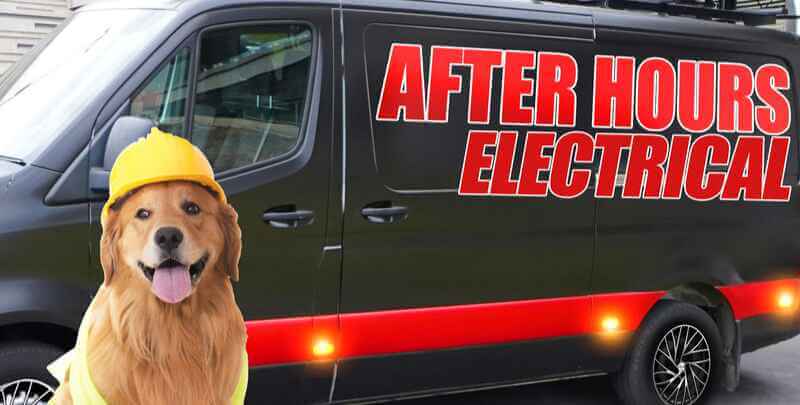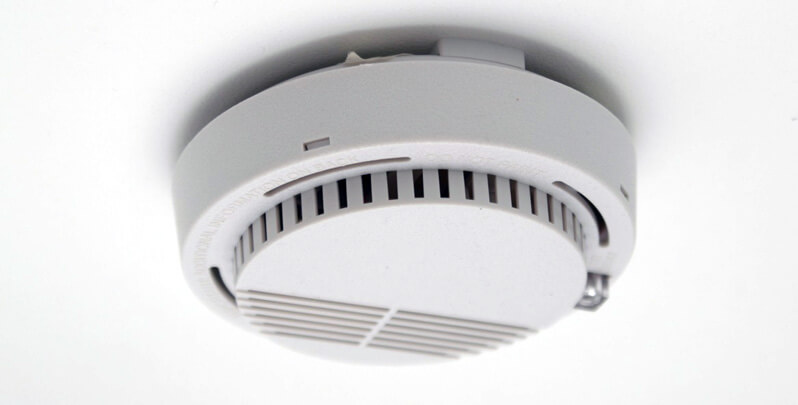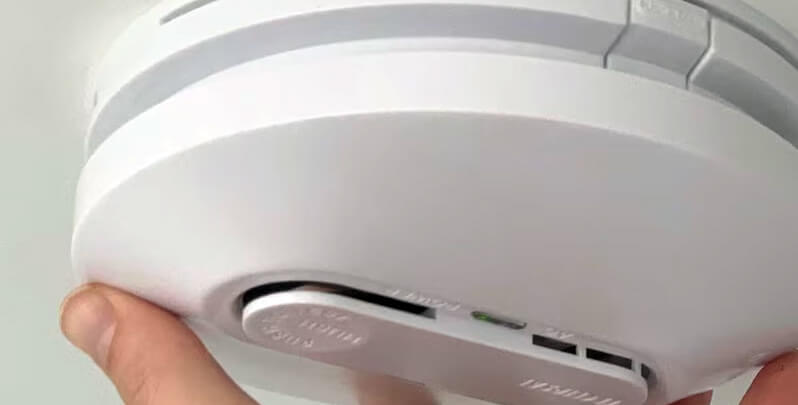Are Smoke Detectors Hard Wired?

The smoke detector is one critical component that should never be overlooked for home safety. These unassuming devices play a pivotal role in safeguarding lives and property by alerting us to the presence of smoke or fire.
But when it comes to choosing the right smoke detector for your home, the question arises: Should smoke detectors be hard wired?
Types of Smoke Detectors
Smoke alarms, also known as smoke detectors, are your first defence against house fires. They are designed to detect the presence of smoke and emit a loud, piercing sound to alert occupants of potential danger. Smoke alarms are available in two primary types: ionisation and photoelectric.
Ionisation Smoke Alarms
Ionisation smoke alarms are highly effective at detecting fast, flaming fires. They contain a small amount of radioactive material that ionises the air in the sensing chamber. When smoke enters the chamber, it disrupts the ionisation process, triggering the alarm. These detectors are particularly responsive to fires that produce small, barely visible smoke particles.
Photoelectric Smoke Alarms
Photoelectric smoke alarms, on the other hand, are excellent at detecting smouldering fires that produce larger smoke particles. They work on the principle of light scattering. When smoke enters the sensing chamber, it scatters the light, causing it to hit the sensor and trigger the alarm.
Hardwired vs Battery Powered Smoke Alarms
What’s the difference between hardwired smoke detectors and battery powered units? Let’s take a look.
Hard-wired Smoke Detectors
Hard-wired smoke detectors are smoke alarms directly connected to your home’s electrical system. They offer several advantages over battery-powered smoke detectors:
- Continuous power supply: One of the most significant benefits of hard-wired smoke detectors is their continuous power supply. They draw power from your home’s electrical grid, ensuring that they remain operational even when the battery-powered alternatives may fail due to dead batteries.
- Interconnected alarms: Hard-wired smoke detectors can be interconnected, meaning that when one alarm detects smoke or fire, it triggers all the interconnected alarms in your home. This feature provides an early warning system, allowing you to respond quickly during a fire.
- Battery backup: Hard-wired smoke detectors provide battery backup to ensure functionality during power outages. This backup power source kicks in when the electricity supply is disrupted, protecting your home.

Battery-Powered Smoke Detectors
Battery-powered smoke detectors are standalone devices that operate on batteries. While they are easy to install and replace, they come with some inherent limitations:
- Battery life: The lifespan of the batteries in these detectors varies, but they will eventually need replacement. Failing to do so can leave your home vulnerable to a fire.
- Nuisance alarms: Battery-powered smoke detectors are more prone to nuisance alarms triggered by cooking fumes or steam from hot showers. These false alarms can be frustrating but are a necessary safety feature.
Hard-Wired Smoke Detectors: The Ideal Choice
Now that we’ve explored the different types of smoke detectors, it’s clear that hard-wired smoke detectors offer unparalleled protection for your home. Let’s delve deeper into why these devices are the ideal choice.
Enhanced Reliability
As mentioned earlier, hard-wired smoke detectors are exceptionally reliable due to their continuous power supply. You won’t have to worry about changing batteries periodically, ensuring your home is protected 24/7.
Interconnected Alarms Save Lives
Interconnected hard-wired smoke detectors can make a life-saving difference in an emergency. When one alarm detects smoke, it triggers all interconnected alarms, providing early warning to every corner of your home. This critical feature can save lives by giving occupants more time to escape.
Compliance with Building Regulations
Many building codes and regulations now require the installation of hard-wired smoke detectors in new residential accommodations or substantially renovated homes. Compliance with these regulations is not only a legal requirement but also a responsible step towards ensuring the safety of occupants.
Battery Backup for Extra Security
Hard-wired smoke detectors also come with a battery backup, ensuring uninterrupted protection during power failures. This redundancy ensures that your home remains safe even when electricity is unavailable.

How an Expert Installs Hard-Wired Smoke Alarms
Installing hard-wired smoke detectors requires expertise and careful attention to detail to ensure they function optimally and provide your home’s highest level of safety. Here’s a step-by-step guide on how a qualified electrician installs hard-wired smoke detectors:
- Assessment and planning – Before installation begins, a professional will assess your home’s layout and determine the best locations for smoke detectors. This assessment considers factors such as the size of rooms, potential fire hazards, and escape routes.
- Gather necessary tools and materials – The installer will gather all the tools and materials required, including hard-wired smoke detectors, electrical wiring, junction boxes, screws, wire connectors, and a power drill.
- Turn off power – Safety is paramount. The expert will shut off the power supply to the area where the installation will occur. This ensures there is no risk of electrical shock during the installation process.
- Mounting the junction box – The installer will mount a junction box on the ceiling or wall. This box serves as the housing for the smoke detector and provides a secure connection for the wiring.
- Connecting wiring – Next, the expert will connect the wiring from the junction box to the smoke detector. This involves connecting the hot (black) and neutral (white) wires and, if applicable, the interconnection wire to ensure all alarms are linked.
- Mounting the smoke detector – The smoke detector is then securely attached to the junction box using screws provided with the device. It should be mounted flush against the ceiling or wall to ensure proper operation.
- Testing and verification – After the installation, the expert will turn the power back on and test each smoke detector. This involves pressing the test button to ensure the alarm sounds and checking that all interconnected alarms respond simultaneously.
- Placement and verification – The professional will verify that the smoke detectors are strategically placed to provide comprehensive coverage throughout your home. Detectors should be installed in hallways, bedrooms, and other critical areas to detect smoke early.
- Customer education – A reputable installer will take the time to educate homeowners on how to maintain and test their smoke detectors regularly. They will also explain what to do in case of an alarm activation or low-battery warning.
- Clean up – Once the installation is complete and all detectors are functioning correctly, the installer will clean up any debris or mess created during the process, leaving your home tidy.
- Documentation and final inspection – An expert installer may provide installation documentation, including the locations of smoke detectors and any relevant maintenance instructions. Before leaving, the professional will conduct a final inspection to ensure all smoke detectors are securely installed and functioning correctly.
By following these steps, an expert ensures that your hard-wired smoke detectors are installed correctly and are ready to provide reliable protection for your home and loved ones.
Secure Your Sanctuary with After Hours Electrical – Your Safety, Our Priority!
The choice between hard-wired and battery-powered smoke detectors is clear in the quest for optimal home safety. Hard-wired smoke detectors, with their continuous power supply, interconnectivity, compliance with regulations, and battery backup, provide the highest level of protection for you and your family.
Don’t compromise on safety – invest in hard-wired smoke detectors to ensure peace of mind and a secure home environment.
These devices represent the pinnacle of home safety technology, offering unmatched reliability and peace of mind. To make your home safer, choose hard-wired smoke detectors and rest easy knowing that you’ve taken a significant step towards protecting your loved ones and your property.
When it comes to smoke detectors, especially if you want to be sure they can effectively detect smoke, the answer is clear: hard-wired smoke alarms are the way to go. At After Hours Electrical, we’re dedicated to ensuring the safety of your home, and that’s why we specialise in providing top-notch smoke alarm installation services.
With our expertise, you can rest easy knowing that your home is protected by the market’s most reliable and advanced smoke alarms. Don’t settle for anything less regarding the safety of your loved ones and your property.
Choose After Hours Electrical for all your smoke alarm needs, and ensure you have the most smoke alarms and smoke detectors to keep your home safe around the clock.
Ready to enhance your home’s safety? Contact us today to ensure you have a working smoke alarm and detector for ultimate peace of mind.
Please note: This information is provided for advice purposes only. Regulations differ from state to state, so please consult your local authorities or an industry professional before proceeding with any work. See After Hours Electrical’s Terms & Conditions here.